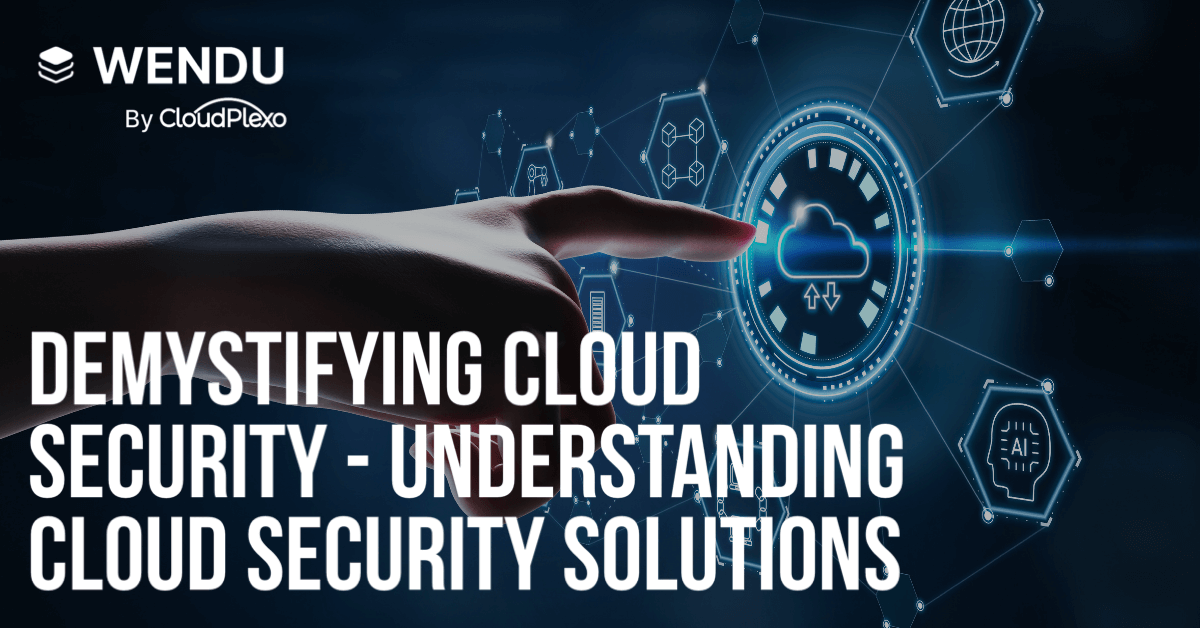
Demystifying Cloud Security - Understanding Cloud Security Solutions
As the cloud landscape continues to evolve, ensuring robust security for your cloud infrastructure is of paramount importance. Cloud security solutions play a critical role in safeguarding your data, applications, and sensitive information from a multitude of threats. In this blog post, we'll delve into the intricacies of cloud security solutions, provide insights into key components, offer best practices for Nigerian businesses, and guide you in selecting the right cloud security provider.
What are the Key Components of a Cloud Security Solution?
A comprehensive cloud security solution encompasses various layers of protection to ensure the integrity and confidentiality of your digital assets:
- Data Encryption: Encryption transforms your data into unreadable code, ensuring that even if unauthorized access occurs, the information remains inaccessible. This is vital for protecting sensitive data during storage and transmission.
- Access Control: Cloud security solutions enforce strict access controls, permitting only authorized personnel to access and manipulate your resources. Multi-factor authentication (MFA) adds an extra layer of protection by requiring multiple forms of verification.
- Identity and Access Management (IAM): IAM solutions manage user identities, permissions, and roles, reducing the risk of unauthorized access. With IAM, you can define who has access to what, ensuring a granular level of control.
- Firewalls and Intrusion Detection/Prevention Systems (IDS/IPS):These tools monitor network traffic, identifying and blocking suspicious activities or potential threats in real-time.
- Security Monitoring and Incident Response: Cloud security solutions provide continuous monitoring, promptly detecting anomalies or breaches. In case of a security incident, a well-defined incident response plan is activated to mitigate damages and prevent further breaches.
What are Cloud Security Best Practices for Nigerian Businesses?
Implementing robust cloud security practices is crucial for maintaining the confidentiality, integrity, and availability of your cloud resources:
- Regular Training: Educate your team about cloud security threats, best practices, and protocols to foster a security-conscious culture.
- Regular Updates and Patch Management: Keep all software and applications updated with the latest security patches to address known vulnerabilities.
- Data Classification: Categorize your data based on its sensitivity and implement appropriate security measures based on its classification.
- Cloud-Native Security: Leverage security features provided by your cloud service provider (CSP) and implement cloud-native security solutions.
- Continuous Monitoring: Deploy security monitoring tools to detect and respond to potential threats in real-time.
How to Choose the Right Cloud Security Provider in Nigeria
Selecting the right cloud security provider is a critical decision. Consider the following factors when making your choice:
- Experience and Expertise: Choose a provider with a proven track record in delivering cloud security services.
- Compliance: Ensure the provider complies with relevant regulations and industry standards.
- Scalability: Your provider should accommodate your growth and scaling needs while maintaining security.
- Integration: The solution should seamlessly integrate with your existing infrastructure and workflows.
- Cost-Effectiveness: Balance the costs of the solution with the level of security it provides.
Are you ready to take your cloud security to the next level? Embrace the power of Wendu's comprehensive cloud security solutions and elevate your business's protection. Contact us today to learn more and get started.